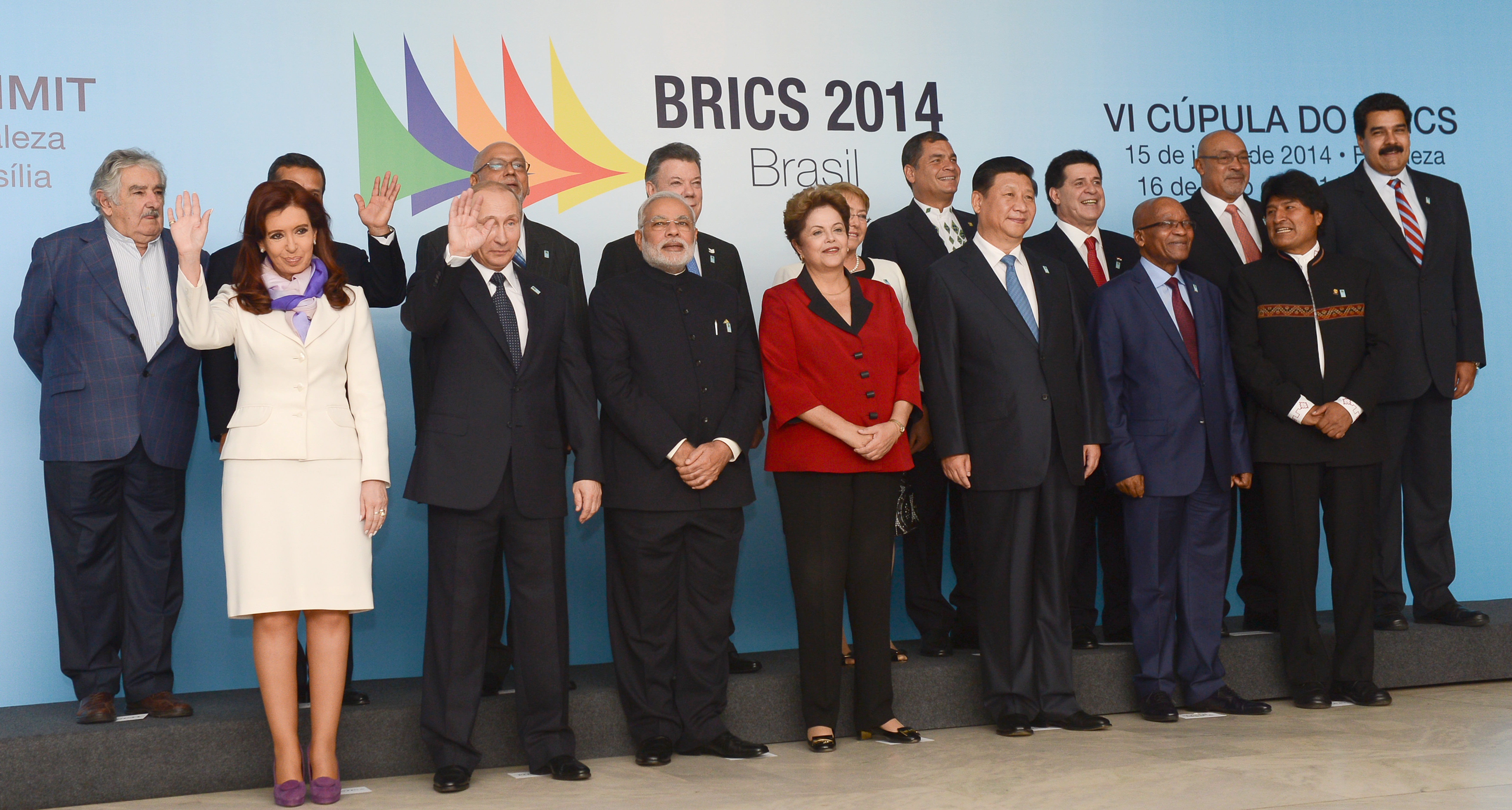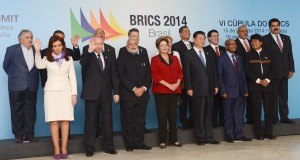The BRICS bank signifies a new era

Time is required before a more thorough analysis can be done, but for now, the stage is set for a potential game changer.

I can lucidly recall being seated in my social studies class and hearing my charismatic teacher, Mr. Smith, articulate the statement that has now proven to reflect a profound truth.
He said, “Any market which has been dominated by a monopoly and now sees the invasion of a rivaling body will almost always benefit the recipients or consumers of the service.”
Small indebted nations and Caribbean states are anxiously watching the birth of the BRICS Development Bank, because the liberal, economic and political order of the world is now being threatened primarily because a few deserving yet powerful nations were not allowed to sit at the table with the “big boys.”
The New Development Bank is being formed by BRICS, five rapidly developing nations: Brazil, Russia, India, China and South Africa. The ultimate objective of this new financial institution is to fund infrastructure projects in developing countries while affording them the privilege of selecting their own way of development.
The NDB will have a capital of $US50 billion with each country contributing ten and $US100 billion in reserve funds.
The structural dynamics have already been established and summits have been frequently taking place with the last one being in July. Before progression, we must establish the actions that have led to the establishment of the bank.
Generally speaking, it is the overall aim of any prosperous country to play a significant role on the international scene and one way to do this is to become a major contributor in the affairs of the International Monetary fund and World Bank. China, India and Brazil shared that dream and as members of those institutions, they wanted a real say but the voting system within those frameworks was unreasonable and marginalizing.
Voting power was determined based on economic strength, so the top five nations — USA, France, England, Japan and Germany — shared approximately 40 per cent of voting power. China, Brazil and India were all accorded with mere fractions of the voting power. Instead of producing firm allies, the flawed system of these western strong-arms gave birth to a set of disgruntled nations.
The face of BRICS now is five united, objectively driven and seemingly equal power-wielding nations. It is not a secret that the U.S. has imposed its will, national interest and overall perspective of global structure on those two affiliated multilateral institutions. BRICS can take from this but in particular, China can and should take a truly useful lesson from this if the aim is to present BRICS Development Bank as a viable, trustworthy alternative to the traditional western economic methodology.
China is the powerhouse of BRICS; 41 per cent of the $100 billion in reserve money is unsurprisingly being contributed solely from China.
This rapidly developing nation already has a potent international influence and impressive track record in infrastructure projects, but this is not a license to get carried away.
Interestingly, it is predicted that some of the main clients of the new bank will be countries in the Caribbean region. China is presently the biggest investor in the Caribbean, hence it must be careful to balance both its influence on BRICS and the world at large so not to give the imperialist impression characterized by the World Bank and IMF.
Equity should be promoted as much as possible. It is a positive sign however, that even though the headquarters will be in Shanghai, the first president will be Indian. Some political pundits say this is a step in the right direction.
Realistically, it does not mean a great deal at this point. Time is required for any program, institution or idea to mature into a truly competitive one. BRICS must be accorded that time to develop before the underrepresented world can start asking for miracles to be pulled out of a hat. Comparatively, taking into account all that BRICS is proclaiming — an alternative to the liberal but rigid way the IMF does things — the world is in for a treat.
A theoretical decomposition of the fiscal strategies embedded in the IMF will see three core things protruding and we are expecting counter ideas to these from BRICS: first of all, the IMF views domestic currency devaluation as an imperative to revenue increase and by extension, growth.
Secondly, increased taxation is viewed also in the same light. Point to note, the standard of the society is often not sufficiently factored in, and Jamaica, Guyana and Greece can all attest to that.
Thirdly, privatization has become synonymous with the IMF. Weirdly, analyzing countries aided by this body will lucidly show how western institutions have invaded and benefited greatly from these victimized countries.
With the IMF and BRICS bank rivaling each other, it is expected that they will share more of a complementary role than a conflicting one. The removal of the per se global monopoly will force the IMF to adjust its poverty reduction strategies and relief policies in order to compete with the BRICS bank. That is in addition to the IMF becoming more transparent and growth driven.
Again, time is required before a more thorough analysis can be done, but for now, the stage is set for a potential game changer.


